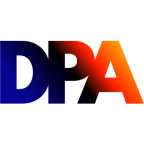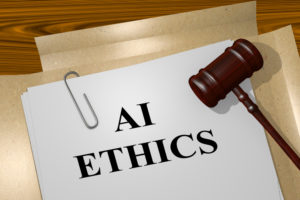
(3rdtimeluckystudio/Shutterstock)
The Dataset Suppliers Alliance (DPA), a coalition of main firms in AI information licensing, has launched a complete place paper on the moral use of AI datasets.
This doc establishes the DPA’s views on key points within the area and offers a framework for selling sustainable and accountable practices.
The early GenAI techniques had been primarily constructed utilizing information scraped from publicly out there web sources. Nevertheless, with elevated consciousness of privateness and mental property (IP) points, information suppliers at the moment are tightening restrictions and requiring formal licensing agreements.
In response to this shift, new startups are rising to satisfy the rising demand for correctly licensed information. Whereas the startups are targeted on fixing the fast want for licensed information, the DPA is engaged on a broader framework to make sure long-term equity, transparency, and moral practices within the AI business.
DPA was established in June 2024, uniting varied dataset suppliers and IP homeowners throughout varied content material sorts, together with music, voice, textual content, video, and pictures. The founding members of the DPA embody Calliope Networks, World Copyright Trade (GCX), Rightsify, vAIsual, Pixta AI, and Datarade.
 “This place paper marks a big step in articulating a unified imaginative and prescient for an moral and pro-innovation strategy to AI information licensing,” stated Alex Bestall, CEO of Rightsify and GCX. “We’re outlining a transparent and viable path ahead that balances the wants of rights holders, dataset suppliers, and AI builders”
“This place paper marks a big step in articulating a unified imaginative and prescient for an moral and pro-innovation strategy to AI information licensing,” stated Alex Bestall, CEO of Rightsify and GCX. “We’re outlining a transparent and viable path ahead that balances the wants of rights holders, dataset suppliers, and AI builders”
The place paper from DPA addresses key points together with content-based licensing, opt-ins, safety of likeness rights, direct licensing agreements for AI information, and moral use of artificial information.
Within the paper, DPA argues towards government-mandated licensing, arguing as a substitute for a “free market” strategy the place AI firms can straight negotiate with information originators. Based on the paper, government-mandated collective licensing may act as an “AI Tax” and stifle innovation.
DPA proposes 5 licensing fashions together with usage-based licensing, outcome-based licensing, subscription mannequin, hybrid licensing, and domain-specific licensing tailor-made for various industries.
Dave Davis, CEO of Calliope Networks, added, “The DPA is main an vital dialog to determine a authorized and ethical framework to make sure that content material homeowners are compensated when their works are used for AI mannequin coaching whereas supporting the event of synthetic intelligence typically.”
The paper additionally highlights the significance of knowledgeable consent in information assortment for AI. It proposes a sturdy and clear opt-in mechanism that makes it clear how information will probably be utilized in AI coaching.
Moreover, opt-ins ought to allow people to decide on particular use for his or her information and they need to have entry to assets that assist them perceive the potential implications of their selections.
To assist steadiness privateness and innovation in AI, for points corresponding to likeness rights, DPA recommends implementing anonymization strategies, restricted use agreements, and utilizing AI to create reasonable however consensual synthetic likenesses for coaching functions. DPA additionally advocates clear labeling for AI-generated likeness and the usage of minimal vital likeness information for AI coaching.
The DPA views licensed artificial information as a key resolution to addressing the anticipated scarcity of actual information for AI coaching, also known as the “information wall.” Nevertheless, the alliance emphasizes correct licensing of the unique information used to create artificial information. It additionally proposes common evaluations to handle biases and moral considerations.
The US launched the NO FAKES Act final yr and the Generative AI Copyright Disclosure Act this yr to handle the rising considerations about authenticity and mental property within the digital age. Commerce associations corresponding to DPA can play a key function in supporting legislative efforts by advocating for efficient coverage implementation.
The DPA faces the problem of encouraging main business gamers to undertake rising moral information licensing requirements. Nevertheless, its formation and proposals present a framework for selling better transparency and accountable AI practices.
Associated Gadgets
AI Ethics Points Will Not Go Away
Fast GenAI Progress Exposes Moral Issues
Deloitte Research Reveals C-Stage Executives’ Dedication to Moral AI Frameworks
